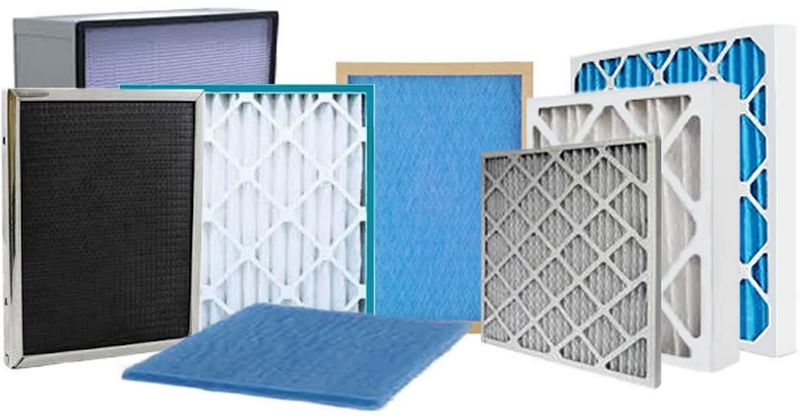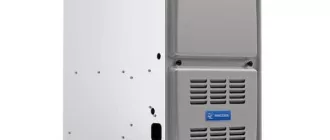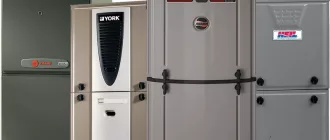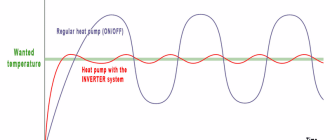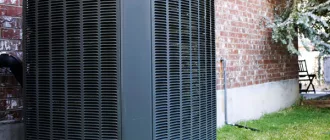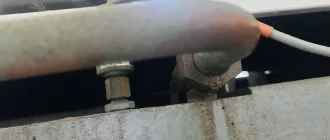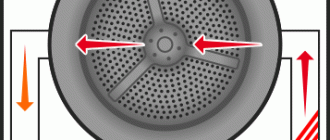Choosing the Right Air Filter for Your Home
When it comes to maintaining a healthy indoor environment, the quality of the air you breathe is paramount. Choosing the right air filter for your home is essential in ensuring that you and your family are protected from dust, pollen, pet dander, and other allergens that can cause respiratory issues and allergies.
With so many options available on the market, selecting the best air filter for your needs can be a daunting task. This comprehensive guide will walk you through the different types of air filters, their efficiency ratings, and factors to consider before making a purchase.
Allergy sufferers, in particular, need to pay close attention to the air filter they choose. A high-quality air filter can help remove pollen, mold spores, and other allergens from the air, providing relief from symptoms and creating a healthier living environment. It’s important to find an air filter that is specifically designed to trap allergens and has a high Minimum Efficiency Reporting Value (MERV) rating.
By taking the time to research and understand the different types of air filters available, their efficiency ratings, and your specific needs, you can make an informed decision and select the perfect air filter for your home. Investing in a high-quality air filter is a small step that can make a big difference in your indoor air quality and overall health.
Understanding the Importance of Air Filters
Allergies and respiratory issues can be exacerbated by poor indoor air quality. Indoor air can contain a variety of pollutants, such as dust, pet dander, and allergens, that can trigger allergies or even cause more serious health problems. This is where air filters come in.
Air filters are designed to remove impurities from the air, improving indoor air quality. They work by trapping particles like dust, pollen, and bacteria as air circulates through the filter. This not only helps to keep the air clean, but it also helps to prolong the life of your HVAC system by preventing these particles from clogging the system.
Choosing the right air filter for your home is essential. Different air filters have different levels of filtration efficiency, which is measured by a MERV (Minimum Efficiency Reporting Value) rating. The higher the MERV rating, the better the filter is at trapping smaller particles.
When choosing an air filter, consider the specific needs of your home. If you have allergies or asthma, you may want to select an air filter with a higher MERV rating to ensure maximum filtration. However, it’s important to note that a higher MERV rating may also restrict airflow, so it’s essential to find a balance between filtration efficiency and airflow.
Regularly changing your air filter is also crucial for maintaining air quality in your home. A dirty or clogged air filter will be less effective at trapping particles, and it can even cause strain on your HVAC system. Most filters should be changed every 90 days, but if you have pets or live in an area with high levels of pollution, you may need to change it more frequently.
In conclusion, air filters play a significant role in improving indoor air quality, reducing allergies, and keeping your home free from dust and other airborne impurities. Understanding the importance of air filters and choosing the right one for your home is essential for creating a healthier and more comfortable living environment.
Determining Your Air Quality Needs
When it comes to choosing the right air filter for your home, it’s important to take into consideration your specific air quality needs. There are various factors to consider, such as allergies, dust levels, and the overall indoor air quality in your home.
If you or your family members suffer from allergies, it’s crucial to choose an air filter that is designed to capture allergens. Look for filters that are labeled as “allergy relief” or “high-efficiency particulate air” (HEPA) filters. These filters are specifically designed to trap and remove pollen, pet dander, mold spores, and other common allergens from the air.
For homes with high levels of dust, it’s important to choose a filter with a high MERV (Minimum Efficiency Reporting Value) rating. Filters with higher MERV ratings have a greater capacity for capturing small particles, including dust particles. Look for filters with a MERV rating of 8 or higher for optimal dust removal.
In addition to considering specific allergens or dust levels, it’s also important to assess the overall indoor air quality in your home. If you have pets, smoke indoors, or live in an area with high levels of pollution, you may need a more advanced air filter to address these specific concerns. Consider filters with activated carbon or additional filtration layers to help remove odors, chemicals, and other pollutants from the air.
Ultimately, choosing the right air filter for your home comes down to understanding your specific air quality needs. By considering factors like allergies, dust levels, and overall indoor air quality, you can make an informed decision and ensure that you are selecting the best filter for your home.
Types of Air Filters Available
When it comes to improving the air quality in your home, choosing the right air filter is crucial. Different types of air filters are available on the market, each with their own benefits and drawbacks. Here are some common types of air filters you can consider for indoor use:
- Fiberglass filters: These filters are affordable and commonly used in homes. They are designed to capture large particles, such as dust and lint, but they may not be as effective in filtering smaller particles or allergens.
- Pleated filters: Pleated filters have a larger surface area than fiberglass filters, making them more efficient in capturing smaller particles, including allergens like pollen and pet dander. They do cost more than fiberglass filters, but the improved filtration can be worth it, especially for allergy sufferers.
- HEPA filters: High Efficiency Particulate Air (HEPA) filters are known for their exceptional filtration capabilities. They can remove up to 99.97% of airborne particles as small as 0.3 microns, including pollen, mold spores, and bacteria. HEPA filters are the gold standard for air purification and are recommended for those with severe allergies or respiratory conditions.
- Activated carbon filters: Activated carbon filters are highly effective in removing odors, gases, and volatile organic compounds (VOCs). They work by adsorbing these pollutants onto the carbon surface. These filters are often used in conjunction with other filter types for comprehensive air purification.
- UV filters: UV filters use ultraviolet light to kill bacteria, viruses, and mold spores in the air. While they can be effective in disinfecting the air, they are not designed to remove particulate matter. UV filters are often used in hospitals and other healthcare settings.
When choosing an air filter for your home, consider the specific needs of your household, such as allergies or respiratory conditions, and select a filter that suits your requirements. It’s also important to regularly replace or clean your air filter to maintain its effectiveness in improving indoor air quality.
Remember, ensuring clean and fresh air in your home is essential for a healthy and comfortable living environment.
MERV Ratings: What They Mean
When it comes to maintaining good indoor air quality, choosing the right air filter is essential. The MERV ratings play an important role in helping you find the best filter for your home.
MERV stands for Minimum Efficiency Reporting Value, and it rates the effectiveness of air filters in capturing and trapping particles. The scale ranges from 1 to 20, with higher ratings indicating better filtration capabilities.
Air filters with higher MERV ratings can capture smaller particles, such as dust, pollen, pet dander, and mold spores, more effectively. These filters are especially beneficial for those with allergies or respiratory conditions, as they can help reduce the presence of allergens and improve overall indoor air quality.
It’s important to consider the specific needs of your home when choosing an air filter. If you have pets or live in an area with high levels of outdoor pollution, a filter with a higher MERV rating may be necessary. However, it’s also crucial to strike a balance, as filters with very high MERV ratings can restrict airflow and strain your HVAC system.
In addition to the MERV rating, other factors to consider when choosing an air filter include the size of your home, the type of HVAC system you have, and your budget. Consulting with a professional or doing research online can help you make an informed decision.
In conclusion, when it comes to choosing an air filter for your home, understanding MERV ratings is key. By selecting a filter with an appropriate MERV rating for your specific needs, you can improve the indoor air quality, reduce dust, and keep allergens at bay. Remember to strike a balance between filtration efficiency and airflow to ensure your HVAC system works effectively.
Considerations for Allergy Sufferers
Allergies can be a major inconvenience, especially when they are triggered by the air quality in your home. Dust and other allergens can circulate through the air, causing discomfort and breathing difficulties. Choosing the right air filter for your home is crucial for allergy sufferers, as it can help to eliminate these irritants and improve the overall air quality.
- HEPA Filter: When selecting an air filter for allergies, look for one with a high-efficiency particulate air (HEPA) filter. HEPA filters are designed to remove at least 99.97% of particles that are 0.3 microns or larger in size. This includes common allergens such as dust mites, pollen, pet dander, and mold spores.
- MERV Rating: Consider the Minimum Efficiency Reporting Value (MERV) rating when choosing an air filter. The MERV rating determines the filter’s ability to capture particles of different sizes. Look for a filter with a MERV rating between 8 and 12 for optimal allergen removal.
- Pleated Design: Pleated filters offer a larger surface area for capturing particles, making them more effective at trapping allergens. The pleats help to increase the filter’s lifespan and improve airflow while maintaining high filtration efficiency.
- Regular Replacement: To ensure maximum effectiveness, it’s important to replace your air filter regularly. For allergy sufferers, it is recommended to replace the filter every 2 to 3 months or more frequently if needed.
By considering these factors when choosing an air filter for your home, you can create a healthier environment for allergy sufferers. Remember to consult with an HVAC professional to determine the specific needs of your home and allergies, as they can provide personalized recommendations.
Considering Pets in Your Selection
Choosing the right air filter for your home is crucial, especially if you have pets. Pets can be a major source of allergens that can affect the air quality indoors. Factors such as pet dander and hair can contribute to a build-up of dust and other particles in the air.
When selecting an air filter, it’s essential to consider the specific needs created by your pets. Look for filters that are designed to capture pet dander and hair effectively. HEPA filters are highly recommended for households with pets, as they are known for their ability to remove airborne particles as small as 0.3 microns with a high efficiency rate.
In addition to the type of filter, also consider the MERV (Minimum Efficiency Reporting Value) rating. Filters with higher MERV ratings are typically more effective in capturing smaller particles. A filter with a MERV rating of 8 or above is usually recommended for homes with pets.
Regularly replacing your air filter is crucial when you have pets, as they tend to shed continuously. It is advisable to check the manufacturer’s recommendations for filter replacement frequency and to follow their guidelines. This will ensure that your air filter is always functioning optimally, capturing pet dander and hair effectively, and maintaining good indoor air quality.
| HEPA Filter | 10 | Highly efficient in capturing pet dander and hair |
| Electrostatic Filter | 8-10 | Efficient in capturing pet allergens and other small particles |
| Pleated Filter | 8 or above | Effective in capturing pet hair and dander |
Remember, choosing the right air filter for your home is essential for optimal indoor air quality, especially when you have pets. By selecting a filter that effectively captures pet dander and hair, you can reduce allergy symptoms and maintain a clean and healthy environment for both you and your pets.
Choosing the Right Size Filter for Your HVAC System
When it comes to improving the air quality in your home, choosing the right size air filter for your HVAC system is crucial. A well-fitting filter will effectively capture dust, allergens, and other indoor pollutants, ensuring that your home’s air is clean and healthy to breathe.
The first step in choosing the right size filter is to determine the correct dimensions. HVAC filters come in various sizes, so it’s important to measure your existing filter or check the manufacturer’s specifications. Common filter sizes range from 16×20 inches to 20×25 inches, but it’s always best to double-check.
Once you have the correct dimensions, it’s time to consider the filter’s efficiency. Look for filters with a high MERV (Minimum Efficiency Reporting Value) rating, as this indicates their effectiveness in capturing airborne particles. Filters with a MERV rating of 8 or higher are recommended for most homes, as they can successfully trap dust, pollen, pet dander, and other allergens.
In addition to size and efficiency, it’s important to choose a filter that suits your specific needs. If you or someone in your household suffers from allergies or asthma, consider investing in a HEPA (High-Efficiency Particulate Air) filter. These filters are designed to remove smaller particles, including pollen, mold spores, and pet dander.
| 16×20 inches | 8 or higher | HEPA filter |
| 20×25 inches | 8 or higher | Allergen reduction |
Remember, choosing the right size filter for your HVAC system is essential for maintaining good indoor air quality. Regularly replacing your air filter, typically every 60 to 90 days, is also important to ensure its effectiveness and prevent clogging. By taking these steps, you can create a healthier and more comfortable living environment for you and your family.
Filter Lifespan and Maintenance
When choosing an air filter for your home, it’s important to consider the filter lifespan and maintenance requirements. The lifespan of a filter refers to how long it can effectively capture and remove airborne particles before it needs to be replaced. Regular maintenance is essential to keep your filter functioning properly and maintaining indoor air quality.
The lifespan of an air filter can vary depending on factors such as the quality of the filter and the level of pollutants in your home. Filters for allergy sufferers or for homes with heavy dust, pet dander, or other pollutants may need to be replaced more frequently than filters in cleaner environments.
It’s important to check the manufacturer’s guidelines for the specific filter you choose to determine its recommended lifespan. Some filters may need to be replaced every 30 days, while others can last up to 6 months or even a year.
In addition to filter lifespan, regular maintenance is key to keeping your air filter functioning optimally. This includes regularly cleaning or replacing the air filter as recommended by the manufacturer. Neglecting filter maintenance can lead to a buildup of particles and reduce the filter’s effectiveness in capturing pollutants.
When it comes to choosing the right filter for your home, consider the specific needs of your household. If you or your family members suffer from allergies or asthma, a high-efficiency filter with a shorter lifespan may be the best choice. If you have pets or live in a dusty environment, a filter with a higher MERV rating may be more effective in capturing these particles.
| Fiberglass Filters | 30 days | Replace |
| Pleated Filters | 3-6 months | Replace or clean |
| HEPA Filters | 6 months – 1 year | Replace |
Remember to regularly check and clean or replace your air filter to ensure optimal performance and indoor air quality. By choosing the right filter and properly maintaining it, you can create a healthier environment for you and your family.
Disposable vs. Permanent Filters
When it comes to choosing an air filter for your home, you have two main options: disposable filters and permanent filters. Each type of filter has its own pros and cons, so it’s important to consider your specific needs and preferences before making a decision.
Disposable filters, as the name suggests, are designed to be used for a certain period of time and then thrown away. They are typically made of paper or fiberglass and are affordable and easy to replace. Disposable filters are a popular choice for those who suffer from allergies or asthma, as they are effective at trapping airborne particles like dust, pollen, and pet dander.
On the other hand, permanent filters are reusable and are made of more durable materials like aluminum or plastic. They are designed to be washed and reused multiple times, which makes them a more environmentally friendly option. Permanent filters are also known for their higher dust-holding capacity, which means they can capture more particles and maintain a higher indoor air quality over time.
When choosing between disposable and permanent filters, it’s important to consider factors such as your budget, the level of indoor air pollution in your home, and any specific allergy concerns. If you have severe allergies or live in an area with high levels of outdoor pollutants, a disposable filter may be the right choice for you. However, if you are looking for a long-term solution that offers superior dust removal and improved air quality, a permanent filter may be worth the investment.
Ultimately, the decision between disposable and permanent filters comes down to personal preference and individual circumstances. No matter which type of filter you choose, regularly changing or cleaning your filter is key to ensuring its effectiveness in capturing airborne particles and maintaining a healthy indoor environment.
Cost Considerations: Balancing Performance and Budget
When it comes to choosing an indoor air filter for your home, there are several factors to consider. One of the most important considerations is cost. While it’s crucial to choose a filter that will effectively improve the air quality in your home and reduce allergens like dust, it’s also important to find a filter that fits within your budget.
There are various types of filters available on the market, ranging in price from affordable to more expensive options. The price of a filter typically reflects its performance and effectiveness. Higher-priced filters often have better filtration capabilities and can capture smaller particles, resulting in improved air quality.
However, choosing the most expensive filter may not always be necessary. It’s essential to consider your specific needs and budget. If you have severe allergies or respiratory issues, investing in a higher-priced filter with superior performance might be worth it. On the other hand, if you only need a basic filter to remove dust and other large particles, a more affordable option may suffice.
Additionally, it’s important to factor in ongoing costs. Some filters require regular replacements, which can add up over time. Consider the lifespan of the filter and the cost of replacements when making your decision. It might be more cost-effective in the long run to invest in a higher-quality filter that requires fewer replacements.
Before making a final decision, it’s recommended to do some research and read reviews from other homeowners. Look for filters that strike a balance between performance and budget. Many brands offer mid-range options that provide good quality at a reasonable price.
In conclusion, when choosing the right air filter for your home, it’s crucial to consider both performance and budget. Finding a balance between the two will ensure that you get the best value for your money while still improving the indoor air quality and reducing allergens effectively.
Additional Features to Look For
When choosing the right air filter for your home, there are several additional features you should consider. These features can enhance the performance of the filter and help improve the air quality in your indoor environment.
One important feature to consider is the filter’s ability to capture allergens. If you or your family members suffer from allergies or asthma, it’s important to choose a filter that can effectively remove allergens from the air, such as pollen, pet dander, and dust mites. Look for filters that are specifically designed for allergy relief and have a high MERV (Minimum Efficiency Reporting Value) rating.
Another feature to look for is the filter’s ability to capture fine dust particles. Dust is a common problem in many homes and can cause respiratory issues and other health problems. Choose a filter that has a high dust-holding capacity and can effectively capture small dust particles to keep your indoor air clean and healthy.
Some filters also come with antimicrobial properties, which can help inhibit the growth of bacteria and mold. This is especially important if you live in a humid environment or have a problem with mold in your home. An antimicrobial filter can help prevent the spread of these harmful organisms and improve the overall air quality in your home.
In addition, consider the filter’s lifespan and maintenance requirements. Some filters need to be replaced more frequently than others, so it’s important to choose one that fits your lifestyle and budget. Look for filters that are easy to install and replace, and consider the cost of replacement filters when making your decision.
By considering these additional features when choosing the right air filter for your home, you can ensure that you are providing a clean and healthy environment for you and your family.
Installation and Replacement Tips
Installing and regularly replacing your air filter plays a crucial role in maintaining the indoor air quality of your home. Here are some tips to help you choose the right filter and ensure it is properly installed and replaced:
- Know your air quality needs: Before choosing a filter, consider the specific air quality concerns in your home. If you have allergies or are prone to dust, you may need a higher MERV rated filter.
- Check the filter size: Measure the exact dimensions of your existing filter or filter slot to ensure you purchase the correct size.
- Choose the right filter type: There are various types of air filters available, including fiberglass, pleated, electrostatic, and HEPA filters. Each type has different levels of efficiency and specializes in trapping specific contaminants.
- Consider the MERV rating: The Minimum Efficiency Reporting Value (MERV) rating indicates a filter’s ability to capture particles of different sizes. Higher MERV ratings generally offer better filtration but may restrict airflow.
- Follow the manufacturer’s instructions: Read the installation instructions provided by the filter manufacturer carefully. Pay attention to any specific installation requirements or recommendations.
- Replace filters regularly: Regularly replacing your filters is essential for optimal performance. The frequency of replacement depends on the manufacturer’s recommendations and the specific conditions in your home. Typically, filters should be replaced every 3 to 6 months.
- Keep track of replacement dates: Write down the installation date on the filter or set a reminder to ensure you replace it in a timely manner.
- Consider professional installation: If you are unsure about how to install or replace your air filter, it is recommended to consult a professional HVAC technician who can assist you with the process.
By following these installation and replacement tips, you can ensure that you maintain a high indoor air quality and minimize the presence of dust, allergens, and other contaminants in your home.
Frequently Asked Questions
Here are some commonly asked questions about choosing the right air filter for your home:
- Why is air quality important for my home?
- How often should I change my air filter?
- What is the MERV rating and how does it affect my choice?
- Can an air filter help with allergies?
- Do I need to consider the size of my HVAC system when choosing an air filter?
Indoor air can contain pollutants such as dust, pollen, pet dander, and allergens. Breathing in these particles can lead to allergies, respiratory issues, and other health problems. Using an air filter can help improve air quality and create a healthier living environment.
It is recommended to change your air filter every 1 to 3 months. However, the frequency may vary depending on factors such as the quality of the filter, the level of air pollution in your area, and the number of occupants in your home. Regularly checking and replacing your air filter will ensure optimal performance.
MERV stands for Minimum Efficiency Reporting Value and it is used to measure the effectiveness of an air filter. The rating ranges from 1 to 16, with a higher number indicating a better filtration efficiency. When choosing an air filter, consider your specific needs and the level of air pollution in your area. A higher MERV rating can capture smaller particles, but it can also restrict airflow, so make sure to find the right balance.
Yes, choosing the right air filter can help alleviate allergy symptoms. Look for filters that are specifically designed to capture allergens such as pollen, dust mites, and pet dander. HEPA (High Efficiency Particulate Air) filters are highly effective in removing allergens from the air.
Absolutely. It is important to choose an air filter that is compatible with the size and specifications of your HVAC system. Using the wrong size can lead to reduced efficiency and potential damage to your system. Refer to your HVAC system’s specifications or consult a professional for guidance.
Q&A:
What are the different types of air filters available for homes?
There are several types of air filters available for homes, including fiberglass filters, pleated filters, electrostatic filters, and high-efficiency particulate air (HEPA) filters.
Which type of air filter is the best for people who suffer from allergies?
For people who suffer from allergies, a HEPA filter is the best option as it can capture tiny particles, such as dust mites, pollen, and pet dander, that can trigger allergies.
How often should air filters be replaced?
Air filters should be replaced every 1 to 3 months, depending on the type of filter and the level of pollutants in your home.
What is the MERV rating and why is it important?
The MERV rating stands for Minimum Efficiency Reporting Value and it measures the effectiveness of an air filter in capturing particles. The higher the MERV rating, the more efficient the filter is at removing particles from the air.
What are some additional features to consider when choosing an air filter?
Some additional features to consider when choosing an air filter include antimicrobial coatings to prevent the growth of bacteria and mold, activated carbon filters to remove odors and gases, and washable filters that can be reused after cleaning.
What factors should I consider when choosing an air filter for my home?
When choosing an air filter for your home, there are several factors you should consider. First, consider the size of your HVAC system to ensure the filter you choose will fit properly. Additionally, consider the MERV rating of the filter, which indicates its efficiency in removing particles from the air. You should also consider any specific concerns you have, such as allergies or pet dander, and choose a filter that can address those concerns. Finally, consider your budget and choose a filter that offers the best combination of performance and value.
What is the MERV rating and how does it affect the performance of an air filter?
The MERV rating, or Minimum Efficiency Reporting Value, is a rating system that measures the efficiency of an air filter in removing particles from the air. The rating scale ranges from 1 to 20, with higher numbers indicating a higher level of filtration efficiency. A higher MERV rating means the filter can capture smaller particles, including allergens, dust, and pet dander. However, it’s important to note that a higher MERV rating may also restrict airflow in your HVAC system, so it’s important to find a balance between filtration efficiency and airflow. Generally, a MERV rating between 7 and 12 is considered sufficient for most residential applications.

